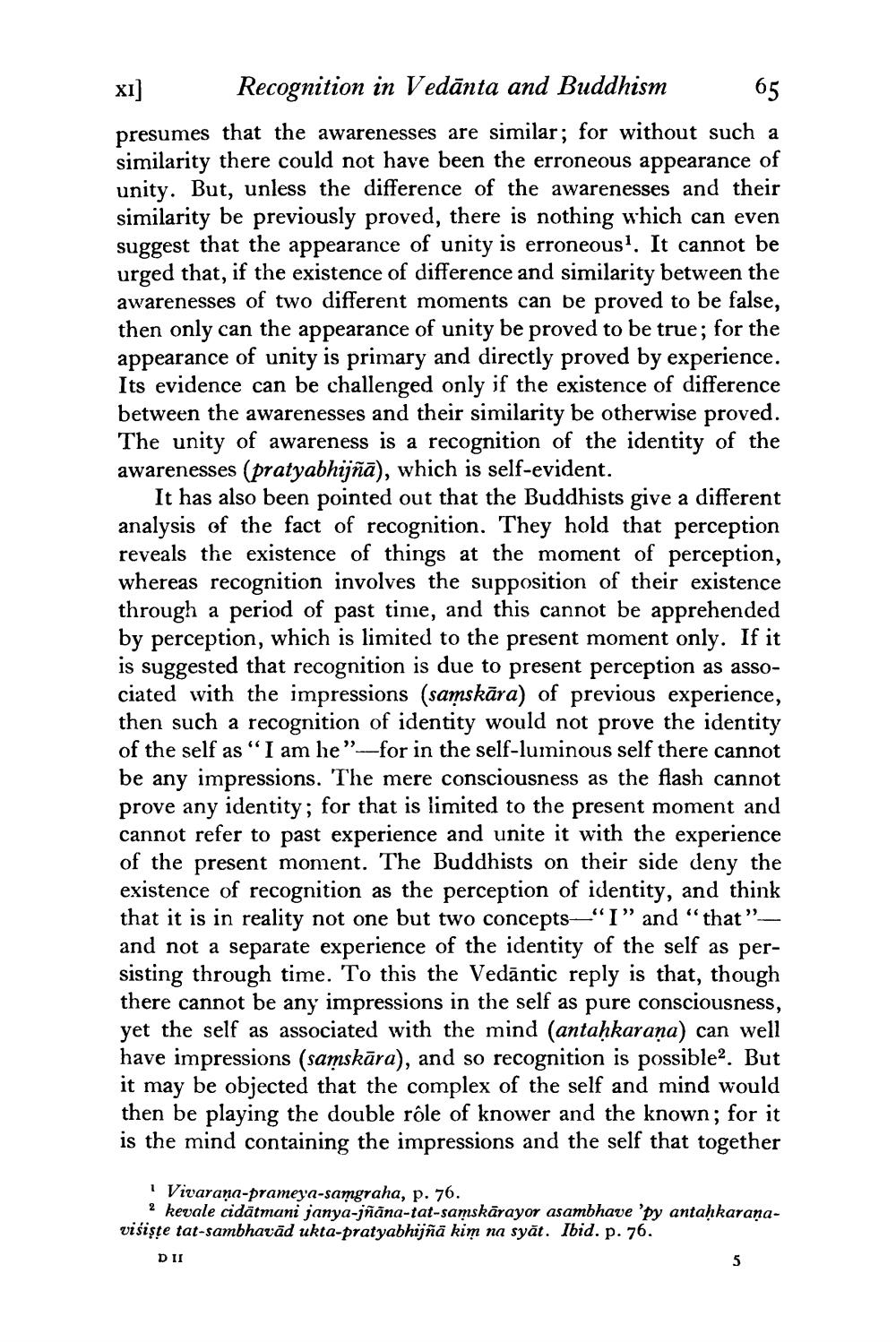________________
XI]
Recognition in Vedanta and Buddhism
65
presumes that the awarenesses are similar; for without such a similarity there could not have been the erroneous appearance of unity. But, unless the difference of the awarenesses and their similarity be previously proved, there is nothing which can even suggest that the appearance of unity is erroneous1. It cannot be urged that, if the existence of difference and similarity between the awarenesses of two different moments can be proved to be false, then only can the appearance of unity be proved to be true; for the appearance of unity is primary and directly proved by experience. Its evidence can be challenged only if the existence of difference between the awarenesses and their similarity be otherwise proved. The unity of awareness is a recognition of the identity of the awarenesses (pratyabhijñā), which is self-evident.
It has also been pointed out that the Buddhists give a different analysis of the fact of recognition. They hold that perception reveals the existence of things at the moment of perception, whereas recognition involves the supposition of their existence through a period of past time, and this cannot be apprehended by perception, which is limited to the present moment only. If it is suggested that recognition is due to present perception as associated with the impressions (samskāra) of previous experience, then such a recognition of identity would not prove the identity of the self as "I am he"-for in the self-luminous self there cannot be any impressions. The mere consciousness as the flash cannot prove any identity; for that is limited to the present moment and cannot refer to past experience and unite it with the experience of the present moment. The Buddhists on their side deny the existence of recognition as the perception of identity, and think that it is in reality not one but two concepts-"I" and "that"and not a separate experience of the identity of the self as persisting through time. To this the Vedantic reply is that, though there cannot be any impressions in the self as pure consciousness, yet the self as associated with the mind (antaḥkaraṇa) can well have impressions (samskāra), and so recognition is possible2. But it may be objected that the complex of the self and mind would then be playing the double rôle of knower and the known; for it is the mind containing the impressions and the self that together
Vivarana-prameya-samgraha, p. 76.
2 kevale cidātmani janya-jñāna-tat-samskārayor asambhave 'py antaḥkaraṇavisiște tat-sambhavād ukta-pratyabhijñā kim na syāt. Ibid. p. 76.
DII
5




